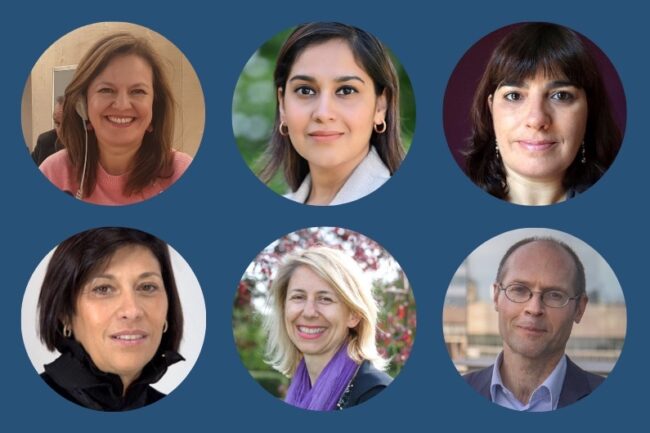Mothers, unpaid care work and global crises – connecting the dots
02.07.24
UN New York / HLPF - Register now to join us online at this year’s High Level Political Forum side-event.


📆 July 11 – 9:30-11:00 am New York / 3:30-5:00 pm Paris
📍 Online – REGISTER HERE
Background information and objectives
Feminist economists have long established the linkages between unpaid care work and women’s specific vulnerability to poverty, especially those of mothers. The disproportionate impact that the multiple and mutually reinforcing global crises has on women and girls is also increasingly recognised. Climate change; armed conflicts affecting all world’s regions and resulting migration; inflation and the cost-of-living crisis; the deepening debt crisis and resulting austerity measures; the ageing population and the looming care crisis: all tend to increase, directly or indirectly, the unpaid domestic and care work that is mostly done by women and girls, thereby exacerbating pre-existing gender inequalities.
However, while the Covid-19 pandemic put the spotlight on care and how essential it is for sustaining our families, communities, society and the economy, the inter-linkages between unpaid care work and those crises are less visible and often ignored by decision makers.
The event will bring together experts and practitioners from different backgrounds to shed light on these links and the role of women as “shock absorbers” during crises. It will also discuss how pre-existing policies and practices in recognising, redistributing and supporting care work can enhance women’s resilience, and examine possible solutions and how taking a ‘care lens’ to policymaking in responding to crises could help redress or at least mitigate their impacts on women’s unpaid care work.
Programme and speakers
Welcome and introduction
- Shahnaz Pakravan, Communications Manager, Make Mothers Matter
- Adriana Quiñones, Head of Human Rights and Development and Deputy Head of UN Women Geneva Office (moderator)
Panel
- Yusra Qadir, Chief Programs and Advocacy Officer, Mothers Matter Canada (MMC) – on the impact of crises-induced migration on women’s ability to assume their care responsibilities, what a grassroots organisation like MMC does to support them, and how to make these issues visible to decision makers
- Lorena Aguilar, Executive Director, Kaschak Institute for Social Justice for Women and Girls, Binghamton University New York – author of UN Women’s Working Paper ‘The climate care nexus’
- Iolanda Fresnillo, Policy and Advocacy Manager – Debt Justice, Eurodad – on the impact of the debt and economic crises and related austerity policy on women’s unpaid care and domestic work
- Celine Charveriat, Founder and CEO, Pro(to)topia, a member for the Forum for caring societies – on how caring societies embedded in ‘economies that dare to care’ could help address crises
- Olivier de Schutter, UN Special Rapporteur on Extreme Poverty and Human Rights, author of the 2024 book ‘Poverty of Growth’ – on the urgent need to reshape our economy and transition to a post-growth development trajectory focused on the realisation of human rights
Q&A
Closing
Note: interpretation in French will be provided.
Resources
- The Climate Care nexus, working paper, UN Women (2023)
- What is the impact of climate change and debt on gender equality and women’s rights?, Eurodad
- A feminist lens on global sovereign debt, Eurodad
- Economies that dare to Care report, and Caring: a solution for our societies in Crisis, working paper, Hot or Cool Institute, a member of the Forum for Caring Societies and the Wellbeing Economy Alliance
- 2024 Annual thematic reports of Olivier de Schutter, UN Special Rapporteur on extreme poverty and human rights, available on the OHCHR website
- The poverty of growth, Olivier de Schutter (Pluto press, 2024)
➔ See also MMM’s written statement to the 2024 HLPF on Addressing crises through a care lens
This webinar is an online side-event to the 2024 UN High-Level Political Forum, which will be held 8 -18 July at the UN headquarters in New York, with the theme ‘Reinforcing the 2030 Agenda and eradicating poverty in times of multiple crises: the effective delivery of sustainable, resilient and innovative solutions’.

The New EU Gender Equality Roadmap : A Call for Inclusion of Mothers
04.03.25
The European Commission’s initiative on a new Gender Equality Roadmap post-2025, marks a significant step forward in addressing gender disparities across the European Union. Make Mothers Matter (MMM
Breaking the Cycle: Gender Equality as a Path to Better Mental Health
18.03.25
The Council of the European Union has taken a decisive step in recognising the vital connection between gender equality and mental health.
Europe Must Listen to Mothers: Our landmark report heads to the European Parliament
28.08.25
On 22 September 2025, the voices of mothers will take centre stage in Brussels. For the first time, Make Mothers Matter (MMM) will present its State of Motherhood in Europe








